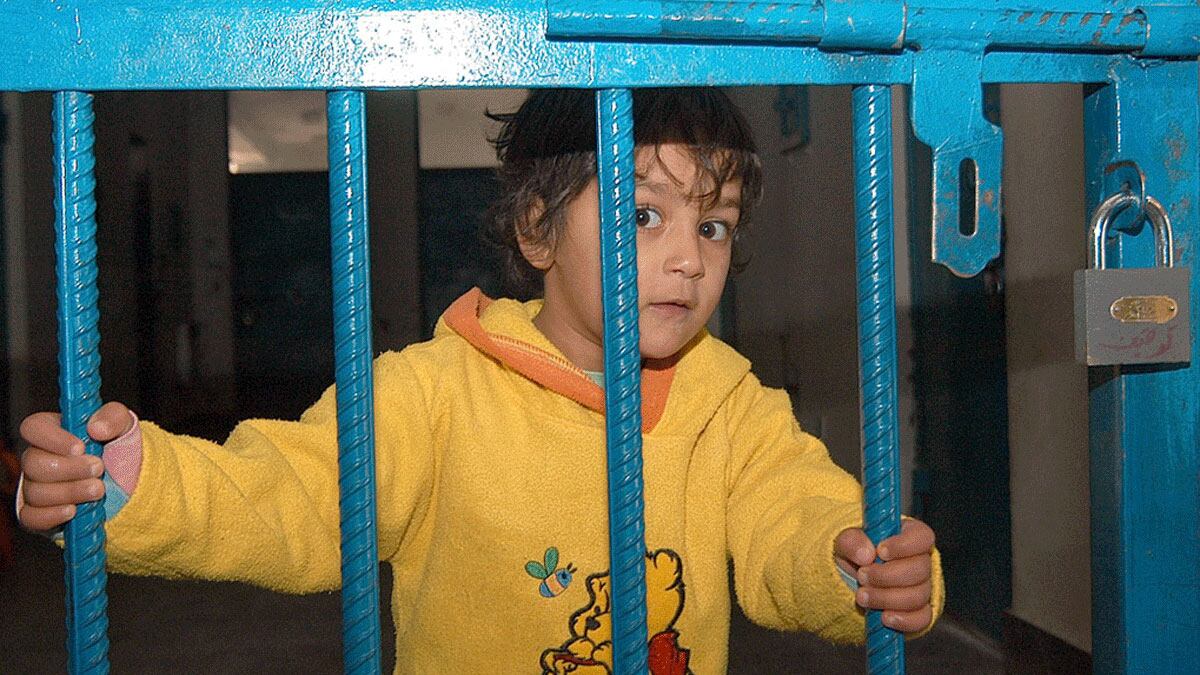A round-faced, dark-eyed 20-year-old mother, Gulnaz has spent the past two years in an unheated Afghan prison cell with 27 other women and their children. Beyond the high concrete walls surrounding her prison on the outskirts of Kabul, the Hindu Kush Mountains tower like snow-covered sentinels, attesting to the harshness of life in Afghanistan. Gulnaz’s baby daughter lives with her, mercifully unaware that her father raped her mother, thereby dooming both mother and child to 12 years behind bars. Sex out of wedlock, even in the case of rape, is considered adultery and a “moral crime” in Afghanistan—in some cases punishable by death.
This week, nearly 100,000 people from around the world helped change Gulnaz’s fate. Signing petitions circulated by a documentary filmmaker named Clementine Malpas and the nonprofit Afghan Women’s Justice Project, activists pressured President Hamid Karzai to pardon Gulnaz. She will go free within days. This victory for women’s rights, however, is tainted by two facts: Gulnaz has agreed to marry her rapist against her will, and more than 600 women and their children remain behind bars in Afghanistan for similar “moral crimes.”
I met Gulnaz, and hundreds of imprisoned women and children, in Afghanistan earlier this year. Their stories are hard to believe. Most are imprisoned for “moral crimes” such as having an extramarital affair (or simply being accused of it), running away from an abusive husband, or murder by proxy, in which a male family member kills someone—and assigns his wife or sister to serve his sentence.
As a journalist, I thought I’d seen it all until I saw these women; their unbelievably unjust fate led me this year to help launch the Afghan Women’s Justice Project, a group that coordinates with local Afghan nonprofits to improve life for women in prison, for instance, by offering them vocational training for when they’re finally freed, and by providing milk and kindergarten classes for their children.

One young woman I met, named Wazhma, had just turned 19 in Badam Bagh prison in Kabul. Tears fell as she told her story; her 6-week-old daughter slept in her arms. She was 16 when her father arranged her marriage to a man 33 years older. Her husband demanded strict obedience and beat her regularly if she dared leave their mud hut without his permission, even to use the outdoor privy. (By Afghan law, women must ask permission of their husband or father to leave the home.)
When she became pregnant, Wazhma’s husband began to treat her even more harshly, announcing he had found a more suitable woman to be his wife. In her eighth month of pregnancy, he claimed the child was not his and accused her of adultery. His brother supported the claim, and that was enough to sentence Wazhma to 11 years in prison for adultery.
She now spends her days, like most prisoners, negotiating personal squabbles, tending to her child, boiling water for tea. Her prison, at least, is one of the better ones, with modern bathrooms. The future holds little hope, as these women will be considered outcasts when they leave their cells.

Another young woman, Farzana, was recently sentenced to Jalalabad prison. A diminutive girl of 18, she speaks in a whisper and covers her mouth when a rare smile appears. She was raped by her father last year, and when her brother came home from serving in the military, he killed the father for his abusive deeds. The brother was sentenced to death, and Farzana and her mother were sentenced to 18 years in jail. Farzana’s baby boy, born of rape in prison, died within days.
The U.S. investment of troops and aid has brought assured progress to Afghan women, especially in Kabul, a city filled with cellphones and hotels—but one need only travel five kilometers outside the city to return to the 15th century. Afghan society is an ancient patriarchy; legal due process for women is nonexistent.
Many of the women I met in Afghan prisons did not complain of their fate. They know that women accused of moral crimes are being killed in Taliban-dominated provinces. In a recent prison break in Kandahar, the two female prisoners refused to leave with the escaping male inmates, assured that freedom would be a death sentence.

Clementine Malpas, an English filmmaker, spent six months documenting the story of Gulnaz and other women prisoners in a film called In-Justice, funded by the European Union. When the movie was finished this past spring, however, the EU decided to block its release, expressing concern that exposure of these victims' identities would endanger their lives. Malpas believes the show must go on. She continues to lobby for the release of her film, to help spread the word of these Afghan women’s fate. To learn more on how you can make a difference, go to the Afghan Women’s Justice Project.






